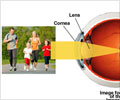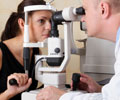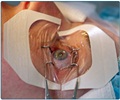Dual focus contact lens has alternating visual correction and does not induce common side effects exhibited by some alternative pharmacological therapies.

- Myopia in children can lead to glaucoma, cataract, retinal detachment and myopic maculopathy if not treated.
- Dual-focus contact lens was effective in slowing myopia progression.
- The lens was well accepted by children and did not affect their daily activities such as school work, reading, playing outside, and computer use.
TOP INSIGHT
The CooperVision dual-focus 1-day lens designed for kids with short sight has been reported to improve vision within 2 years of use and is easy to use.
Calif, CooperVision Senior Manager of Clinical Research Paul Chamberlain shared two-year interim results from a clinical trial assessing a specially-designed, dual-focus myopia control 1-day soft contact lens in reducing the rate of progression of juvenile-onset myopia.
Initiating treatment for myopia in childhood represents a meaningful commitment by parents in the near- and long-term health and well-being of their children. The CooperVision dual-focus 1-day lens used in this study provides a new approach that's proving effective at 24 months.
Parents of study participants also had a very positive response, noting their children could mostly manage their lens wear independently. Prior to dispensing contact lenses, less than half of the parents were extremely at ease with their child wearing contact lenses, but this increased significantly to 79% after just one month and remained high through the two-year mark. Parents reported minimal involvement and assistance with lens handling after one month of contact lens wear by their children.Throughout the study, 8 out of 10 parents rated their children 'extremely happy' with the overall experience.
For lens removal, minimal parental assistance was required throughout the trial (4% of parents providing more than one assist in the first week and none at 24 months). Reminders by parents to insert or remove lenses were infrequent. At 24 months, 82% of parents rated their children 'extremely happy' with overall experience of the dual-focus contact lens.
Ocular comfort during contact lens wear in both groups was excellent, with 95% of children in the control group and 98% of children in the test group reporting that they could never or sometimes feel their contact lenses. When test and control subjects were asked how they liked wearing their type of vision correction, 78% and 80% of children respectively rated contact lenses the best.
- Calif, New study shows contact lens therapy effective in slowing myopia progression in children, 95th American Academy of Optometry's Annual Meeting (2016).
Source-Medindia
 MEDINDIA
MEDINDIA




 Email
Email










